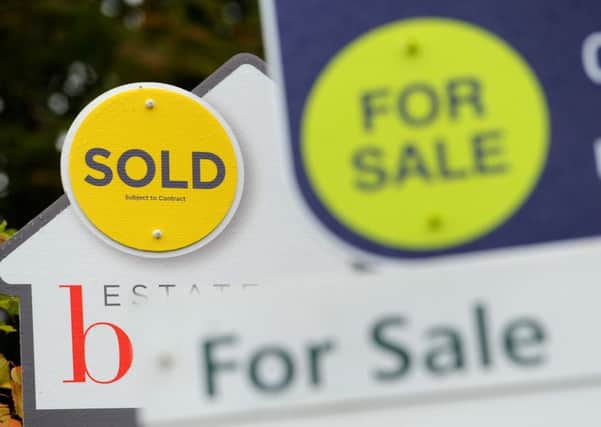House prices end 2016 on a high as buyers shrug off fears
This article contains affiliate links. We may earn a small commission on items purchased through this article, but that does not affect our editorial judgement.


Property values increased by 1.7 per cent between November and December, far outstripping the 0.3 per cent rise forecast by economists.
The figures pushed the annual house price rise up to 6.5 per cent in December, according to the Halifax House Price Index. Across the UK, the average property value stood at £222,484 last month.
Advertisement
Hide AdAdvertisement
Hide AdThe monthly price surge for December defied fears that Britain’s vote to leave the European Union would heap pressure on the housing market and cause prices to crash.
Despite the robust end to 2016, Martin Ellis, Halifax’s housing economist, warned that a number of pressures would rein in demand this year.
“Slower economic growth, pressure on employment and a squeeze on spending power, together with affordability constraints, are expected to reduce housing demand during 2017,” he said.
“Overall, annual house price growth nationally is most likely expected to slow to 1 per cent to 4 per cent by the end of 2017.”
Howard Archer, chief UK and European economist at IHS Global Insight, also expects housing market activity and prices to come under pressure this year.
“We believe the fundamentals for house-buyers will progressively deteriorate during 2017 with consumers’ purchasing power weakening markedly and the labour market likely softening.
“Increasing economic uncertainty is also likely to weigh down on consumer confidence and willingness to engage in major transactions such as buying a house.”
Samuel Tombs, chief UK economist at Pantheon Macroeconomics, agreed that the outlook for the housing market remained weak.
Advertisement
Hide AdAdvertisement
Hide Ad“The surge in house prices in December should not be read as a sign that the housing market is fizzing,” he said.
“The three-month average of the year-over-year growth rate is a much better guide to the underlying trend; it remains significantly weaker than before the referendum.”
The index found that Luton had notched up the biggest percentage rise in house prices last month with a 19.4 per cent rise compared with last year. Last month Halifax named Aberdeen as seeing the biggest house price fall in 2016, down 6.9 per cent. Inverness and Falkirk were also among the biggest fallers.
• Persimmon Homes in Scotland plans 15 new sites in 2017 as it aims to continue building in Aberdeen, Dunbar, Bridge of Weir, Dunfermline, Stewarton and Haddington, as well as Arbroath, Helensburgh, Lennoxtown, East Calder and Dundee.
Scottish regional chairman John Cassie revealed the plans yesterday after Persimmon’s update last week showing its UK legal completions in 2016 rose by 599 new homes to 15,171 and its autumn sales were strong.
